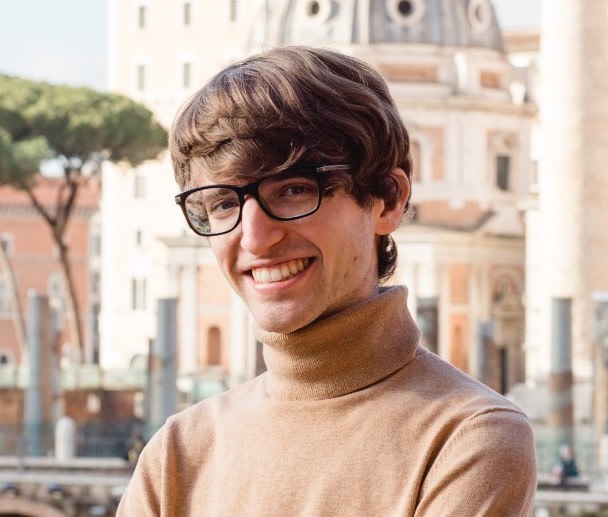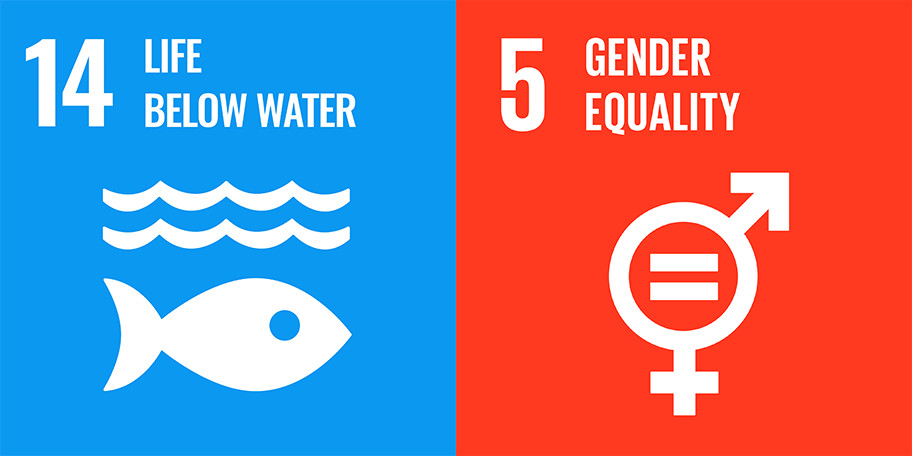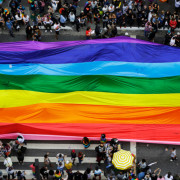- Science News
- Humanities
- Breaking down invisible barriers for LGBTQIA+ in STEM
Breaking down invisible barriers for LGBTQIA+ in STEM
By Dr Aswathi K Sivan and Dr Andrew L Miller

June is the month of the year dedicated to LGBTQIA+ pride.
In a previous post, we interviewed Dr Alfredo Carpineti (chair of the association Pride in STEM) and we talked about the importance of diversity, equity and inclusion (DEI) in science and research.
As we mentioned, Frontiers is proud to offer a platform for the empowerment of openly-LGBTQIA+ editors. Specifically, the journal Frontiers in Nanotechnology recently launched a special issue with an editorial team composed fully of openly queer researchers in nanotechnology.
We asked this editorial team to share with us their point of view, so as to be able to focus the attention on relevant themes and really offer an empowering platform to the community we wish to represent.
The following opinion piece is from Dr Aswathi K Sivan (University of Basel), in collaboration with Dr Andrew L Miller (Dutch National Institute for Subatomic Physics).
LGBTQIA+ scientists have made significant contributions to their respective fields, despite the myriad of barriers they face. The pioneering works of several scientists such as Alan Turing, Lynn Conway, and Ben Barres have paved the way for a greater acceptance and inclusivity of LGBTQIA+ people in the scientific community.
Despite all the changes and improvements, even in 2023 it is still very relevant to talk about the need to create a more welcoming space for LGBTQIA+ scientists in academia; particularly for people with intersecting identities, such as LGBTQIA+ women and people of color or people coming from different socio/political backgrounds. A study published in 2018 shows that students belonging to sexual minorities are less likely to persist after four years in science, technology, engineering, and mathematics (STEM) fields, as opposed to switching to a non-STEM program, compared to their heterosexual peers.
Academia is still rife with harassment and bullying for people who don't relate to the lived experiences of the majority. The DEI efforts in academia are light years behind in terms of intersectionality.
Widening the conversation
An article titled, 'The Intersectional Privilege of White Able-Bodied Heterosexual Men in STEM', showed the disparity between different minority groups, with LGBTQIA+ black women with disabilities being the most disadvantaged.
In an era where the issues of DEI are beginning to be openly discussed in academia, we find that efforts are often limited to promoting the status of able-bodied, heterosexual, cisgender white women, at the expense of other marginalized groups, such as people of color and members of the LGBTQIA+ community.
In general, race and sexuality often do not enter explicitly into conversations, nor do they receive the level of support that agendas promoting gender equality do. In the end, a few cishet white women sit on DEI committees and become the faces of DEI, ostensibly advancing the interests of 'all', but mostly appearing to make science more gender-balanced, and not anything else.

We must ask ourselves the question if appointing a few white cishet women in positions of power is enough to break the glass ceiling for all?
The lack of intersectionality in DEI efforts will inevitably lead to minority groups, in particular LGBTQIA+ women of color and people with disabilities, leaving academia altogether. As an example, a previous study showed LGBTQIA+ women and gender minorities experience an even more hostile workplace climate in astronomy and planetary science compared to cisgender, straight women.
Breaking down invisible barriers
What can we do as members of academia to break down the invisible barriers for LGBTQIA+ and other minorities?
We must destroy and then reconstruct the institutions which are often built on racist, sexist, heteronormative, and colonial ideals. Grant agencies and hiring committees should actively seek out LGBTQIA+ candidates, particularly people with intersecting identities in their DEI efforts, rather than limiting their choices to a few cishet white women and calling that 'diversity'.
Institutions should recall that those in the majority have already received significant advantages simply for being members of the majority. They should consider applications holistically and in historical contexts before selecting a privileged person for a position over one that has been marginalized. Funding agencies should ensure that host institutions have inclusive LGBTQIA+ policies and that grantees report the intersectional DEI measures they have undertaken during the span of a project.
"The entire weight of making academia inclusive should not be falling only on the shoulders of 'minorities'"
Dr Aswathi K Sivan and Dr Andrew L Miller
It appears to us that the need for funding agencies to promote gender equality completely neglects any mention of systemic and historical discrimination against marginalized people of color and LGBTQIA+ people. Largely left out of textbooks, the unwritten history is that "minorities", a nice word for people who have been discriminated against, have had their rights and means to live violated by Western colonial powers. They now have to compete against this privileged class in a world designed against them for jobs that likely go to mirror images of the privileged class.
Therefore, we need to tie funding to systemic ways of improving the presence of LGBTQIA+ and people of color in science. On more local scales, international conference committees should bear in mind that there are still many countries in which the rights of LGBTQIA+ people are systematically violated and should avoid hosting events in these places.
Universities should encourage the sharing and usage of preferred pronouns among employees. Bystander training must be compulsory for all employees, so they can help their counterparts in times of discrimination.
There should be institutional funding for organizing networking events and career coaching for LGBTQIA+ and other minorities. The entire weight of making academia inclusive should not be falling only on the shoulders of 'minorities'.

Frontiers is a signatory of the United Nations Publishers COMPACT. This interview has been published in support of United Nations Sustainable Goal 5: Achieve gender equality and empower all women and girls and United Nations Sustainable Goal 14: Conserve and sustainably use the oceans, seas and marine resources for sustainable development.








